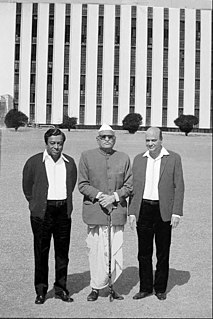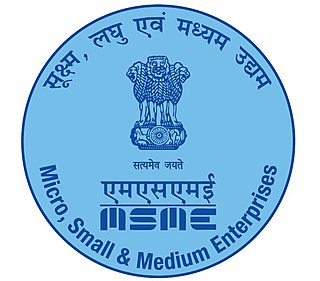
Education in India is primarily provided by public schools and private schools. Under various articles of the Indian Constitution, free and compulsory education is provided as a fundamental right to children aged 6 to 14. The approximate ratio of public schools to private schools in India is 7:5. Major policy initiatives in Indian education are numerous. Up until 1976, education policies and implementation were determined legally by each of India’s constitutional states. The 42nd amendment to the constitution in 1976 made education a ‘concurrent subject’. From this point on the central and state governments shared formal responsibility for funding and administration of education. In a country as large as India, now with 28 states and seven union territories 1, this means that the potential for variations between states in the policies, plans, programs and initiatives for elementary education is vast. Periodically, national policy frameworks are created to guide states in their creation of state-level programs and policies. State governments and local government bodies manage the majority of primary and upper primary schools and the number of government-managed elementary schools is growing. Simultaneously the number and proportion managed by private bodies is growing. In 2005-6 83.13% of schools offering elementary education were managed by government and 16.86% of schools were under private management. Of those schools managed privately, one third are ‘aided’ and two thirds are ‘unaided’. Enrolment in Grades 1-8 is shared between government and privately managed schools in the ratio 73:27. However in rural areas this ratio is higher (80:20) and in urban areas much lower (36:66).

North 24 Parganas or sometimes North Twenty Four Parganas is a district in southern West Bengal, of eastern India. North 24 Parganas extends in the tropical zone from latitude 22° 11′ 6″ north to 23° 15′ 2″ north and from longitude 88º20' east to 89º5' east. It is bordered to Nadia by north, to Bangladesh by north and east, to South 24 Parganas and Kolkata by south and to Kolkata, Howrah and Hoogly by west. Barasat is the district headquarters of North 24 Parganas. North 24 Parganas is West Bengal's most populous district and also the second most populated district in the whole of India. It is the tenth-largest district in the State by area.

Operation Flood, launched on 13 January 1970, was the world's largest dairy development program and a landmark project of India's National Dairy Development Board (NDDB). It transformed India from a milk-deficient nation into the world's largest milk producer, surpassing the United States of America in 1998 with about 22.29 percent of global output in 2018. Within 30 years, it doubled the milk available per person in India and made dairy farming India's largest self-sustainable rural employment generator. It was launched to help farmers direct their own development and giving them control of the resources they create. All this was achieved not merely by mass production, but by production by the masses; the process has since been termed as the "White Revolution". If there was one technological breakthrough that revolutionized India's organized dairy industry, it was the making of skim milk powder out of buffalo milk. The man who made this possible was Harichand Megha Dalaya. The Anand Pattern Experiment at Amul, a dairy co-operative, was the engine behind the success of the program.

The Indian Institute of Chemical Technology is a national-level research center located in Hyderabad, Telangana, India under the Council of Scientific and Industrial Research (CSIR). IICT conducts research in basic and applied chemistry, biochemistry, bioinformatics, chemical engineering and provides science and technology inputs to the industrial and economic development of the country. IICT has filed one of the maximum CSIR patents.

Kalinga Institute of Industrial Technology (KIIT), formerly KIIT University, is a private institute deemed to be university located in Bhubaneswar, Odisha, India.
The history of Agriculture in India dates back to Indus Valley Civilization. India ranks second worldwide in farm outputs. As per 2018, agriculture employed more than 50% of the Indian work force and contributed 17–18% to country's GDP.
Ashok Jhunjhunwala is an Indian academic. He received his B.Tech. from the Indian Institute of Technology, Kanpur and PhD from the University of Maine. He has been a faculty member at the Indian Institute of Technology Madras since 1981, where he is currently Institute Professor. During his career, he has contributed extensively to technology innovation and adoption in the Indian context.
The Ministry of Rural Development, a branch of the Government of India, is entrusted with the task of accelerating the socio-economic development of rural India. Its focus is on health, education, drinking water, housing and roads.

Ravi Shankar Prasad is an Indian lawyer, politician and the current Union Minister holding the Law and Justice, Electronics and Information Technology and Communications portfolios in the Government of India. A member of the Bharatiya Janata Party, Prasad represents the Patna Sahib constituency. During the NDA Government under Atal Bihari Vajpayee's prime ministership, Prasad was appointed Minister of Coal and Mines, Minister of Law and Justice, and Minister of Information and Broadcasting.

The Green Revolution in India refers to a period in India when agriculture was converted into an industrial system due to the adoption of modern methods and technology, such as the use of high yielding variety (HYV) seeds, tractors, irrigation facilities, pesticides, and fertilizers. Mainly led by agricultural scientist M. S. Swaminathan in India, this period was part of the larger Green revolution endeavor initiated by Norman Borlaug, which leveraged agricultural research and technology to increase agricultural productivity in the developing world.

Periyar Maniammai Institute of Science & Technology is a private deemed-to-be-university located in a rural part of South India accredited by NAAC. The university headquarters is in the town of Vallam in Thanjavur district, Tamil Nadu, India. It was earlier named "Periyar Maniammai College of Technology for Women". It is considered the world's first women's engineering college.

The Ministry of Micro, Small and Medium Enterprises, a branch of the Government of India, is the apex executive body for the formulation and administration of rules, regulations and laws relating to micro, small and medium enterprises in India. The Minister of Micro, Small and Medium Enterprises is Nitin Gadkari and the Minister of State is Pratap Chandra Sarangi since 31 May 2019.

The state of Uttar Pradesh had a long tradition of learning, although it had remained mostly confined to the elite class and the religious establishment.
Padmanabha Krishnagopala Iyengar, was an Indian nuclear physicist who is widely known for his central role in the development of the nuclear program of India. Iyengar previously served as the director of BARC and former chairman of the Atomic Energy Commission of India, he raised his voice and opposition against the nuclear agreement between India and the United States and expressed that the deal favoured the United States.

Rajnikant Shankarrao Arole was born in Supa in the Ahmednagar district of Maharashtra, India on 10 July 1934, the second child of Shankar and Leelawati Salve Arole. His parents were both schoolteachers and his father became Inspector of Schools. The Aroles raised their three sons and four daughters in the faith of the Church of England, inculcating in them Christian ethical and spiritual values that have guided Rajnikant through a lifetime of public service.
Development and Educational Communication Unit is an arm of Indian Space Research Organisation which aims at planning and imparting training the personnel for usage of satellite based communication systems for societal needs. The main objective of the organisation is to plan and envisage satellite usage for the general population in domains such as education and medicine, as well as many others.
Mitraniketan K. Viswanathan was a social reformer, philanthropist and environmentalist in Kerala, India. He founded Mitraniketan, a non governmental organization in Vellanadu, Thiruvananthapuram in 1956.

Digital India is a campaign launched by the Government of India in order to ensure the Government's services are made available to citizens electronically by improved online infrastructure and by increasing Internet connectivity or making the country digitally empowered in the field of technology. The initiative includes plans to connect rural areas with high-speed internet networks.It consists of three core components: the development of secure and stable digital infrastructure, delivering government services digitally, and universal digital literacy.

Anil Prakash Joshi is an Indian green activist, social worker, botanist and the founder of Himalayan Environmental Studies and Conservation Organization (HESCO), a Dehradun-based non governmental organization involved in the development of environmentally sustainable technologies for the agricultural sector. He is a recipient of the Jamnalal Bajaj Award and is an Ashoka Fellow. The Government of India awarded him the fourth highest civilian honour of the Padma Shri, in 2006, for his contributions to Indian society. He was also awarded by Padma Bhushan 2020 for social work in Uttarakhand. Dr. Joshi appeared in the Kaun Banega Crorepati, Karamveer episode aired on 25th December 2020.
N. Srinivasa Iyer Ramaswamy (1926–2012), popularly known as Cartman Ramaswamy, was an Indian engineer, educationist, management academic and writer, and the founder director of the Indian Institute of Management, Bangalore. He was the founder of Centre for Action, Research and Technology for Man, Animal and Nature (CARTMAN), a non governmental organization working for region-relevant and appropriate technology transfer to rural areas and Indian Heritage Academy, an organization involved in propagating Indian cultural traditions. He was also the founder chairman of the Adarsh Vidya Kendra (AVK) Group of educational institutions. The Government of India awarded him the third highest civilian honour of the Padma Bhushan, in 2006, for his contributions to society.












